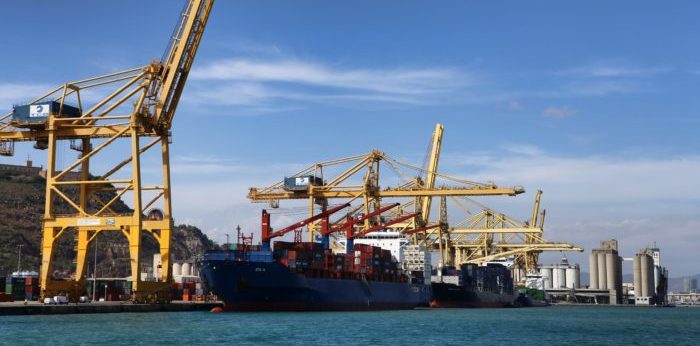The Port of Barcelona informed it has invested a total of € 926,000 to promote electrical mobility in the port area, as part of its Air Quality Improvement Plan, which aims to effectively reduce the emissions from port activity.
The project comprises two main actions: incorporating vehicles with electric motors into the Port fleet and installing the charging infrastructure, both for the fleet itself and for other electric vehicles that circulate around the port area.
Thus, the Port has invested a total €692,000 by incorporating 31 vehicles into its fleet of vehicles, replacing old diesel and petrol-powered units, and €234,000 in designing and building the charging infrastructure for electric vehicles.
For the electrical supply of the own fleet vehicles, 28 slow loading points have been installed in the carpark at the World Trade Center in Barcelona, where the corporate headquarters of the Port is located. In addition, there are 14 charging points (six for vans and eight for motorcycles) in the ASTA service building (Ronda del Port) and two additional charging points for the Port Police motorcycles at the Drassanes Passenger Terminal (Barcelona Wharf).
Furthermore, three charging points have been installed for public use: one fast charger in front of the Drassanes Passenger Terminal (which can be converted into two semi-fast charging points and will be operating soon) and two slow chargers on Energy Wharf.
During the first half of 2018, four additional cargo points will also be incorporated for Port employees, who will be located in the car parks of the ASTA building and on Sant Bertran Wharf.
The Port of Barcelona electrical mobility plan covers the introduction of new electric or hybrid vehicles over the next few years, which, along with those already available, could reach 70 units in 2024. Bringing these units on stream will depend on the future needs of the Port and also on the evolution of electric mobility technology.
The promotion of electric mobility is one of the 53 actions included in the Port of Barcelona Air Quality Improvement Plan, that was presented just over a year ago. Other notable actions are the promotion of liquefied natural gas (LNG) as mobility fuel for boats, trucks and terminal machinery and the discount policy on vessel fees to attract the most efficient vessels at environmental level.
“As a public entity, we want to promote sustainability with concrete initiatives, such as those we are presenting today, and we want to be leaders so that other entities and companies in the Port Community can join this change,” said Sixte Cambra, President of the Port of Barcelona.

































































